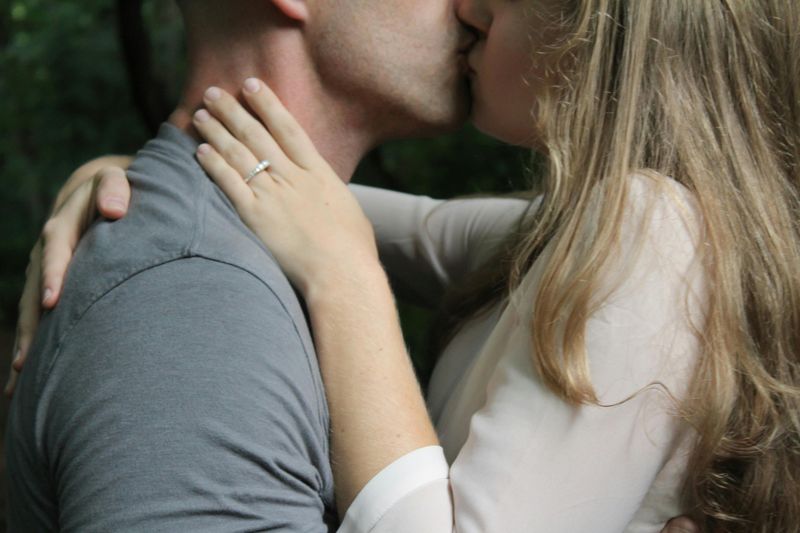Friendship First, Relationship Later? Here’s 14 Reasons Why It Works

Building a strong friendship before diving into a romantic relationship might seem old-fashioned to some, but it’s actually a smart approach. When you start as friends, you create a solid foundation based on trust and genuine connection. This path to love allows you to truly know someone without the pressure of romantic expectations clouding your judgment. Let’s explore why starting as friends can lead to the strongest relationships.
1. You Already Know Their True Colors

Without the pressure of romance, friendship uncovers true character—how they handle tough moments, interact with others, and act in private. This knowledge is priceless. Dating strangers means discovering their quirks and flaws while emotionally invested, which can lead to painful surprises. Friends-turned-lovers skip this uncertain discovery phase. You’ve already witnessed their good days and bad, how they treat waitstaff, and whether they’re kind to animals—all telling indicators of character that romantic chemistry might otherwise blind you to.
2. Communication Patterns Are Already Established

Before romance even starts, deep friendships help you practice clear communication and peaceful conflict resolution—skills that benefit any relationship. Many new couples struggle with communication barriers. They dance around issues, afraid to appear difficult or scare their partner away. Friends don’t have this problem. You’ve built a communication style that works for both of you through countless conversations. This head start means fewer misunderstandings and more productive discussions when you transition to dating, giving your relationship a significant advantage from day one.
3. The Awkward Phase Is Already Behind You

Remember those first-date jitters? The carefully planned outfits and rehearsed conversation topics? Friends-to-partners skip this entirely! You’ve already conquered the awkward getting-to-know-you phase during friendship. No need to worry about first-impression mistakes or uncomfortable silences—you’re comfortable burping, wearing old sweats, or sharing embarrassing stories around each other. This comfort creates space for authentic connection. Rather than spending energy on impression management, you can focus on deepening your bond. The relationship starts from a place of relaxed familiarity instead of nerve-wracking uncertainty, making the transition to romance much smoother.
4. You Share Common Interests And Values

Friendships naturally form around shared interests and compatible worldviews. By the time romance develops, you already know you enjoy similar activities and hold matching core values. This alignment matters tremendously. Many relationships struggle when fundamental differences in priorities, political views, or lifestyle preferences emerge later. As friends-first couples, you’ve likely discussed important topics like family, career goals, and personal beliefs without romantic pressure. Your friendship survived because these values aligned enough for meaningful connection. This compatibility gives your relationship stronger roots and fewer surprises about deal-breaker differences down the road.
5. Trust Has Been Built Over Time

Trust doesn’t appear overnight—it’s earned through experience. While friendships create it over time, dating someone unfamiliar means starting from zero. Each person wonders if the other is sincere or just saying what sounds good to impress them. Friends already have a trust bank filled with deposits from past experiences. You’ve seen each other keep promises, share secrets, and show up when needed. This established trust creates security that new relationships lack, allowing your romance to progress with confidence rather than constant questioning about intentions.
6. You’ve Seen Each Other At Your Worst

Friends witness each other through life’s messiest moments. Bad haircuts, food poisoning, job losses, family drama—you’ve been there for it all. This shared history creates unparalleled acceptance. Many new couples present polished versions of themselves, hiding flaws and vulnerabilities until they feel secure enough to reveal them. Starting as friends means the pretense is already gone. You’ve helped each other through tough times and still chose to stick around. This acceptance provides a safety net for your relationship, knowing your partner won’t run at the first sign of imperfection or during inevitable rough patches.
7. The Relationship Has A Solid Foundation

Brick by brick, friendship creates a sturdy base—one made of trust, laughter, and loyalty. When romance enters, it doesn’t replace that bond—it builds on it. Many relationships built primarily on physical attraction or convenience struggle when challenges arise. Without deeper connections to fall back on, these partnerships often crumble under pressure. Friend-first relationships stand on firmer ground. Your romantic connection grows from an existing structure of trust, communication, and genuine appreciation for each other’s character. This solid base helps weather relationship storms that might otherwise tear newer couples apart.
8. Reduced Pressure For Perfection

Dating often feels like a performance. New couples frequently exhaust themselves trying to maintain flawless appearances and hide insecurities. Friends-turned-partners skip this exhausting charade. You’ve already seen each other’s quirks and decided you like each other anyway. Bad morning breath, embarrassing family members, questionable music taste—all these cards are already on the table. This honesty creates freedom. You can focus on enjoying your relationship rather than maintaining an unsustainable image. The pressure valve releases, allowing both people to relax into authentic connection instead of constantly worrying about meeting impossible standards of perfection.
9. Family And Friends Already Approve

Your social circles have already merged naturally through friendship. Parents, siblings, and friend groups know and accept your partner before they become your partner. This integration eliminates a major hurdle many new couples face. No awkward first meetings with suspicious friends or protective family members sizing up your new love interest. The social approval reduces external pressure on your relationship. Your support networks already understand your connection and have witnessed your compatibility firsthand. This built-in acceptance creates a welcoming environment for your relationship to flourish without the stress of winning over skeptical loved ones or navigating complicated friend group dynamics.
10. You’re Dating For The Right Reasons

Starting as friends means the choice to date comes from true compatibility, not fleeting chemistry. You’ve had time to appreciate who they really are beyond the surface. Many relationships begin for convenience, loneliness, or physical chemistry alone. These motivations often fade, leaving couples wondering why they got together. Friends choose each other deliberately after seeing the whole picture. You’re not filling a void or chasing excitement—you’re choosing someone whose company you genuinely enjoy and whose character you respect. This intentional selection based on substance rather than surface-level attraction creates relationships with staying power.
11. Conflict Resolution Skills Are Already Developed

No friendship is free of conflict—but navigating those tough moments has taught you how to communicate with care and compromise when needed. These skills transfer directly to romantic relationships. Many new couples struggle with their first arguments, unsure how to disagree productively without damaging the relationship. Friends-turned-partners have a playbook for healthy conflict. You understand each other’s communication styles, know when to give space, and can separate disagreements from personal attacks. This existing conflict resolution framework helps prevent small issues from becoming relationship-ending problems.
12. You Know Each Other’s Love Languages

Through deep friendships, you learn how others want to be cared for—whether they light up from affirming words, shared time, or helpful gestures. This knowledge becomes invaluable in romance. Many relationship misunderstandings happen when partners express love differently and miss each other’s signals of affection. Friends-first couples start with this understanding already in place. You intuitively know how to make each other feel valued because you’ve been doing it platonically for years. This head start in emotional intelligence helps avoid the common frustration of feeling unloved when partners simply speak different love languages.
13. The Friendship Doesn’t Disappear With Romance

While romantic sparks may ignite quickly, it’s friendship that keeps love alive long-term. As passion naturally ebbs and flows, the couples who stay strong are often the ones who were friends first. Without friendship as a foundation, they may find little connecting them beyond physical attraction. Friends-first couples maintain their original bond alongside developing romance. You still enjoy hanging out, sharing interests, and supporting each other’s growth—the core elements that drew you together initially. This continuing friendship ensures your relationship remains fulfilling even when romantic intensity naturally ebbs and flows.
14. You’ve Already Vetted Long-Term Compatibility

Friendship provides an extended compatibility test without romantic complications. You’ve observed habits, values, and life goals without rose-colored glasses distorting your view. This perspective is invaluable. Many couples discover fundamental incompatibilities only after significant emotional investment, making separation much more painful. Friends have already confirmed basic alignment on important factors like financial attitudes, family values, and life priorities. You’ve had countless conversations about future plans and seen how they handle responsibilities. This advance screening significantly increases your chances of long-term success compared to relationships where these discoveries happen alongside developing romantic attachment.

Comments
Loading…